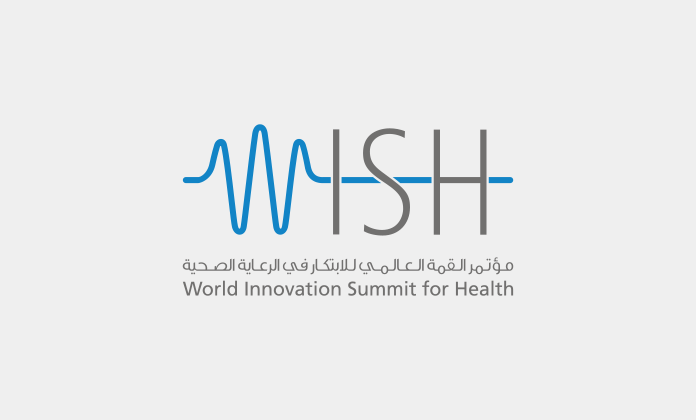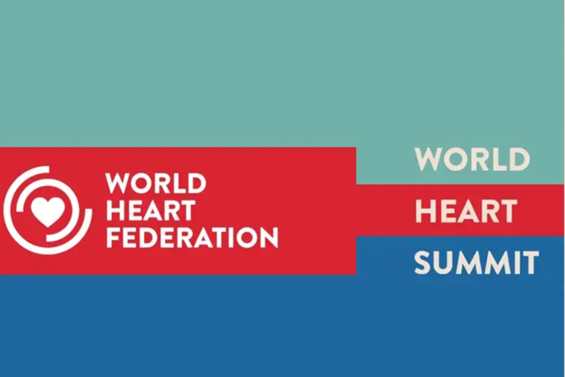Cell phones, loyalty cards and social networking websites must be harnessed to improve health

DOHA, QATAR: Cell phones, security cameras, social networking websites and loyalty cards could become as important as the stethoscope and the blood pressure monitor for monitoring health, experts have said today at the inaugural World Innovation Summit for Health (WISH).
The billions of digital traces generated by the electronic devices on which we rely, collectively known as Big Data, provide a far more accurate and complete picture of our mental and cultural life than has ever been available before and could be used to improve health, cut costs and even halt epidemics.
In a new report to be published at WISH today, leading experts will call for an international charter on data sharing that would allow organizations to exchange information about our health, behavior and lifestyles. The report will also examine how bringing data together can have a huge global impact on the spread of disease and change our behavior in order to protect and improve people’s health.
The Right Honourable Professor the Lord Darzi of Denham, Executive Chair of WISH and Director of the Institute of Global Health Innovation at Imperial College London, said: “Protecting individuals’ privacy is vital but at the same time a means must be found to use the vast quantities of data that is now becoming available for the benefit of global health.”
Professor Alex ‘Sandy’ Pentland, Director at the Human Dynamics Laboratory, Massachusetts Institute of Technology and Chair of the Big Data and Healthcare Forum, said: “The ’digital breadcrumbs’ we leave behind are already allowing us to improve health, cut costs and even halt epidemics. We need to harness this huge new source of valuable information about our lifestyles and behaviors in order to improve health care and help reduce costs, without compromising on quality or privacy.”
Professor Pentland told the audience that a project monitoring mobile phone use anonymously in Ivory Coast had enabled researchers to track movements of people for the first time and cut infectious disease rates by 20 per cent. “The world is going through a profound change. Where once a pandemic could race through a population and no one knew about it now there are 5 billion cell phones from which we can generate reports about people’s behavior.”
Muhammed Al Yemeni, deputy minister of health, Saudi Arabia, said IT systems had been developed to monitor the transfer of patients between hospitals and there were plans to measure nurses’ workload. Improved access to data had enabled Saudi Arabia to correct false information published elsewhere. “We found a lot of the information about us was incorrect. It was based on extrapolations from other countries. Now we can correct it.”
The novelty of the field was highlighted by Sir David Nicholson, chief executive of NHS England, who said five years ago he would not have attended a session on big data. But rapid developments in technology combined with growing economic pressures on all health systems – the UK NHS faces a £30 billion funding shortfall over the next five years – could not be ignored. “Finding new ways to get value out of the money we are spending is critical,” he said.
He cited the example of cardiac surgeons publishing their mortality data, pioneered in the UK. “That has had a massive impact around the world,” he said. Outbreaks of Norovirus, which regularly close hospital wards during the winter in the UK can be identified at source by tracking social media.
Professor Michelle Holmes, professor of public health at Harvard University, said the greatest impact of big data was likely to be felt in the developing world which had previously had little data on which to draw. Monitoring the mobile use of 500,000 people in west and east Africa would make it possible to measure directly whether people cycled to work or ate in fast food restaurants rather than relying on questionnaires.
“big data has never been perfect but there is more of it so now we can get closer to the truth,” she said.
Big Data and Healthcare is one of eight areas being discussed at WISH taking place in Doha, Qatar on 10 and 11 December, where world leading experts will join an influential cast of heads of state, government ministers, academics, clinicians, policy makers and business leaders to discuss innovative solutions to some of the most pressing global health challenges. As well as Big Data and Healthcare, there will be reports on Accountable Care, Antimicrobial Resistance, End of Life Care, Mental Health, Obesity, Patient Engagement and Road Traffic Injuries.
Professor Lord Darzi, Executive Chair of WISH said: “Protecting individuals’ privacy is vital but at the same time a means must be found to use the vast quantities of data now becoming available for the benefit of global health.”
WISH opened today in Doha and is under the patronage of Her Highness Sheikha Moza bint Nasser, Chairperson of Qatar Foundation for Education, Science and Community Development. WISH supports the aims and ambitions of Qatar Foundation and reinforces Qatar’s pioneering role as an emerging center for medical innovation.
ENDS
Notes to editors:
- Big Data and Healthcare Report Summary
The report offers cases studies from countries at all stages of economic development. It also proposes recommendations for policy-makers that can help address the concerns and overcome the barriers that inhibit the realization of the potential of Big Data for transforming health.
Example case studies
The report includes several detailed examples of the power of big data driven insight:
I. Living Labs for Health
-
- CATCH Living Lab: Personal Health and Continuous Health Assessment
- PaCT Living Lab: Chronic Disease Surveillance
- mHealth Living Labs
II. Big Data and Longitudinal Follow-up
Epidemiologic Cohort Studies
III. Population Health
Punjab: Preventing the Spread of Infectious Disease
IV. Data Ownership
Personal Health Data Ownership
V. Health Systems
-
- Dimagi: Health Worker Data Recording
- mPedigree: Medication Purchases and Diagnostic Trends
- Ghana: Medical Claims
- Qatar: Electronic Health Records
- NHS England: Care.data
- Costs: Big Data and Healthcare Costs
Recommendations for policy-makers
-
- Encourage public-private partnerships: This kind of collaboration can serve to underwrite costs and accelerate deployment; special sector banks are a useful method.
- Ensure data access: Update privacy and data ownership policies to ensure that data are accessible by patients and their healthcare providers, and require trust network technology in order to provide safe data sharing.
- Allow for open data: Pool unrestricted government data and non-proprietary private data in an open data commons, in order to promote development of a “Big Data” health ecosystem. The report suggests that there needs to be an international Charter for Open Data Sharing, which specifies best practice, and commits nations to sharing health data for their mutual benefit.
- Promote Big Data health science: Create centers of excellence to train Big Data behavioral and health scientists in the use of opensource tools for data analysis.
- Accelerate Big Data health practices: Support partnerships between physicians and Big Data behavioral scientists to create “living laboratories” that develop new Big Data health solutions.
- About Professor Alex ‘Sandy’ Pentland
Professor Alex ‘Sandy’ Pentland is the Director at the Human Dynamics Laboratory, Massachusetts Institute of Technology.
Alex “Sandy” Pentland directs MIT’s Human Dynamics Laboratory and the MIT Media Lab Entrepreneurship Program, co-leads the World Economic Forum Big Data and Personal Data initiatives, and is a founding member of the Advisory Boards for Nissan, Motorola Mobility, Telefonica, and start-up firms such as Ginger.io, CogitoHealth.com, and Sense Networks. He has previously helped create and direct MIT’s Media Laboratory, the Media Lab Asia laboratories at the Indian Institutes of Technology, and Strong Hospital’s Center for Future Health. In 2012, Forbes named Sandy one of the “seven most powerful data scientists in the world” along with Google founders and the CTO of the United States, and in 2013 he won the McKinsey Award from Harvard Business Review. He is among the most-cited computational scientists in the world and a pioneer in computational social science (including health science), organizational engineering, wearable computing (Google Glass), image understanding, and modern biometrics.
- About WISH
The inaugural World Innovation Summit for Health (WISH), due to be held in Doha, Qatar on 10-11 December 2013, will bring together heads of state, ministers, senior government officials, academics and thinkers, as well as the most influential business leaders, to stimulate implementation of practical, sustainable and innovative solutions to tackle global health challenges.
The purpose of WISH is to encourage collaboration and innovation in health policy, health systems and health care delivery, in order to close the gap between what we know and what we do in the fields of healthcare and medicine.
WISH is aligned with the mission and vision of Qatar Foundation and Qatar National Vision 2030, and serves to highlight Qatar’s growing role as an emerging center for healthcare innovation. As the nation stands at the forefront of healthcare reform, Qatar Foundation has embarked upon several promising research-health initiatives, including partnerships with Weill-Cornell Medical College, Biobank Qatar, Qatar Robotic Surgery Centre Qatar Cardiovascular Research Centre, Virgin Health Bank, and Sidra Medical and Research Center.
For more information on WISH, please visit: http://www.wish-qatar.org/
- Qatar Foundation – Unlocking Human Potential
Qatar Foundation for Education, Science and Community Development is a private, non-profit organisation that is supporting Qatar on its journey from carbon economy to knowledge economy by unlocking human potential for the benefit of not only Qatar, but the world. Founded in 1995 by the Father Emir, His Highness Sheikh Hamad Bin Khalifa Al Thani, Amir of Qatar, QF is chaired by Her Highness Sheikha Moza bint Nasser.
QF carries out its mission through three strategic pillars: education, science and research, and community development. QF’s education pillar brings world-class universities to Qatar to help create an education sector in which young people can develop the attitudes and skills required for a knowledge economy. Meanwhile, its science and research pillar builds Qatar’s innovation and technology capacity by developing and commercialising solutions through key sciences. Finally, its community development pillar helps foster a progressive society while also enhancing cultural life, protecting Qatar’s heritage and addressing immediate social needs in the community.
For a complete list of QF’s initiatives and projects, visit http://www.qf.org.qa
For more information about Qatar Foundation please contact our press office at: pressoffice@qf.org.qa
More News

WISH Brings Global Leaders Together at Osaka Expo to Tackle Attacks on Health in Armed Conflict
Read More

